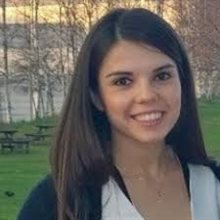
Join the next online Additive Manufacturing & 3D Special Interest Group (SIG), this SIG will focus on Bioprinting as we hear from an academic, a clinician and a business as they present what they have learned.
This event is in partnership with The University of Nottingham – Centre for Additive Manufacturing.
The webinar will cover:
– The development of smart biomaterials for bioprinting multi-cellular living tissues
– Translation of bioprinted tissues into clinic, challenges and opportunities
– Entrepreneurship in bio-printing: biohybrid neural devices
DURATION: 1.5 hour
This free to attend event is held as part of the INSTILS programme – a project part-funded by the European Regional Development Fund, click here to be re-directed to further information about the project. This event is classed as State Aid to participating businesses, the value of which is £190, but is delivered completely free of charge to participants.
Speaker Profiles:
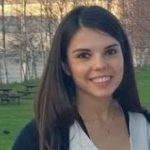
Chaired by: Laura Ruiz Cantu, Transitional Assistant Professor, Centre for Additive Manufacturing, The University of Nottingham
Laura’s research is focused on the use of Additive Manufacturing technologies for Regenerative Medicine and drug delivery applications. Laura has extensive expertise in several AM technologies including micro extrusion printing, inkjet 3D printing, micro stereolithography and most recently volumetric additive manufacturing. Some of her work includes, developing libraries of photocurabe biomaterials for 3D printing subdermal implants, 3D bioprinting cartilage for facial reconstruction, developing methodologies for rapid screening of inks and 3D printing of long term subdermal implants for chronic diseases. Currently, Laura and team are working on developing smart osteoinductive photocurable biomaterials for inkjet printing and microSLA. Laura is also associated to the smart materials HUB from the UK Regenerative Medicine Platform. As part of the HUB she is working on implementing different 3D printing technologies for the manufacture of scaffolds for bone regeneration.
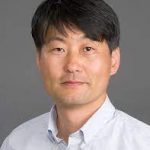
Dr Sang Jin Lee, Associate Professor, Wake Forest Institute for Regenerative Medicine (WFIRM)
Sang is an Associate Professor of the Wake Forest Institute for Regenerative Medicine (WFIRM), Wake Forest School of Medicine, with an affiliate appointment in the Virginia Tech-Wake Forest University School of Biomedical Engineering and Sciences (SBES). The WFIRM is an international leader in translating scientific discovery into clinical therapies. WFIRM were the first in the world to successfully implant a laboratory-grown organ into humans and today are working to grow more than 30 different organs and tissues in the laboratory. He extensive knowledge and experience in biomaterials science, especially, biodegradable polymers and tunable hydrogels, with specific training and expertise in key research areas for tissue engineering and regenerative medicine. His research team has developed various biomaterial systems that improve cellular interactions by providing appropriate environmental cues. These biomaterial systems consist of drug/protein delivery systems, nano/micro-scaled topographical features, and hybrid materials that can actively participate in functional tissue regeneration. Recently, his team is utilizing automated 3D bioprinting technology to manufacture complex, multi-cellular living tissue constructs that mimic the structure of native tissues. This can be accomplished by optimizing the formulation of biomaterials to serve as bioinks for 3D bioprinting, and by providing the biological microenvironment needed for the successful delivery of cells and biomaterials to discrete locations within the 3D structure. He has authored more than 150 scientific publications, 15 patent registrations/applications, 500 scientific presentations, 70 invited lectures and mentored over 160 trainees, ranging from undergraduate students to practicing physicians.
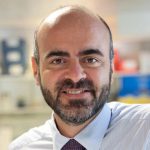
Professor Paolo De Coppi, Consultant Paediatric Surgeon, Great Ormond Street Hospital (GOSH)
Paolo is a Consultant Paediatric Surgeon at Great Ormond Street Hospital (GOSH) and Head of Stem Cells and Regenerative Medicine at the UCL Institute of Child Health in London. He has been an Honorary Professor at the Katholieke Universiteit Leuven, Belgium, since 2013, an Adjunct Assistant Professor at the Wake Forest Institute for Regenerative Medicine, Wake Forest University in Winston-Salem, North Carolina, since 2009 and an Honorary Assistant Professor in Paediatric Surgery at the University of Padua, Italy, since 2005. He has a special interest in congenital malformations and their treatment using minimally invasive techniques. He has focused his research interests on stem cells and tissue engineering by trying to find new modalities for the treatment of complex congenital anomalies. While working with Anthony Atala, M.D., at the Boston Children’s Hospital (Massachusetts), he identified the possibility of using stem cells from amniotic fluid for therapeutic applications. This finding generated an international patent and garnered the cover story of Nature Biotechnology January 2007. This finding has opened the door to discovery for novel approaches to correct congenital malformations. Recently he was awarded a WellcomeLeap grant that will be focused on engineering human kidneys and urinary tracts in collaboration with Prof David Long and the kidney development and disease group at UCL.
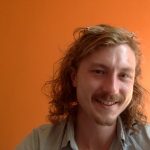
Dr Benjamin Paul, CEO, Neuroloom Ltd
Ben founded Neuroloom Ltd in 2017 to commercialise his neurotechnology inventions and has since won multiple competitions and instigated several University and business consortiums. As the sole inventor of Neuroloom’s core patent Ben has presented to academic, clinical and commercial audiences and has co-authored several academic papers. Before founding Neuroloom, Ben completed an MSc in Bioengineering and a PhD in Manufacturing at the University of Nottingham. Neuroloom’s expertise is coordinating living neurons so they can reliably integrate with living tissue and coordinate the tissues activity, whether in the dish or in the body.

